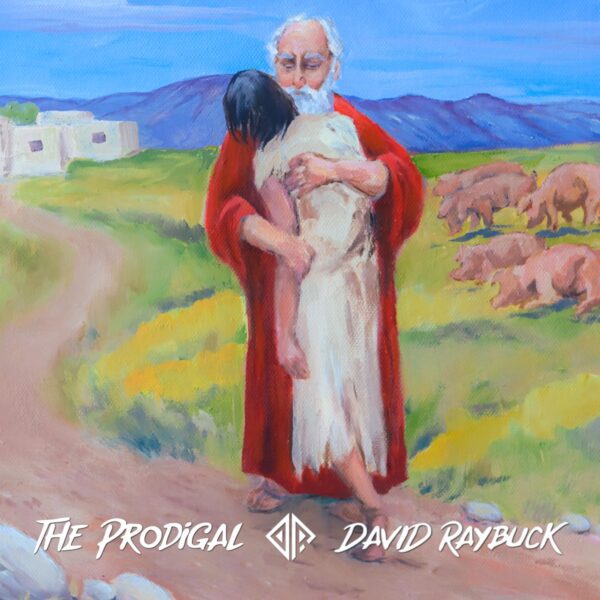
There’s nothing easy about a debut album. The consensus around most of them is using it as a “calling card” for studios to know your worth and your potential, but every once in a while a debut album will come along that blows everything else out of the water. Looking at the early-aughts indie scene, Arcade Fire and The Strokes invented an entire sound, subculture, and way of life out of their first records. It can happen, but it’s extremely rare. It’s rare to have success but to invent an entire genre… nearly impossible. Thankfully for David Raybuck, the only thing he’s aiming to do with The Prodigal, which just so happens to be his debut album, is get the word of God out to the masses and see what comes from it.
The Prodigal feels a lot more put together than most debuts; it could be related to the fact that Raybuck has been hard at work using what little free time he has between being a pastor and also a father (to SEVEN kids)to whittle away at the creative process, but there’s something more to it than that. Listen to the album’s title track and you’ll hear his story; coming from hardships beyond the usual road bumps from life, David Raybuck is a man who has been through it all. In a way, The Prodigal is his experience of coming back from that edge, changed and ready for whatever’s next. It’s not common to get freshman releases as confident as this, but The Prodigal is written with the urgency of someone afraid they’ll never get to do this again, and that usually spells for a standout piece of work.
Using his background in religious work as a pastor, Raybuck crafts a handful of beautifully-composed songs meant to beckon those already in the faith as well as those on the outside with questions and uncertainties. The lead single “Hosanna” is a wonderful first song on the album for this reason as it slowly nudges its way out of the shadows, revealing its intentions to transform your worldview on the concept of faith-based music.
The most interesting piece of the album’s construction comes from Raybuck’s crystal clear rock and alternative influences, such as Smashing Pumpkins, Led Zeppelin, Ween, and Nirvana — in the melodies there are touches of John Lennon, and throwing all of these directions into a melting pot of Christian rock makes for a great time. Such tracks as “Abide” and “Dwell” shed light on a rather grunge-infused record, which is a neat experience to have as someone who doesn’t generally listen to Christian rock.
Raybuck’s heart-on-the-sleeve approach to transcend preconceived notions of what the genre should be in favor of what he wants the genre to be is a dynamite idea, and by the end of The Prodigal it has already started blowing up like a beautiful geyser. The future of faith-based rock music isn’t in a corner, it’s in rock music — David Raybuck is merely the messenger, but the message moves through him and it moves well.
Clay Burton
